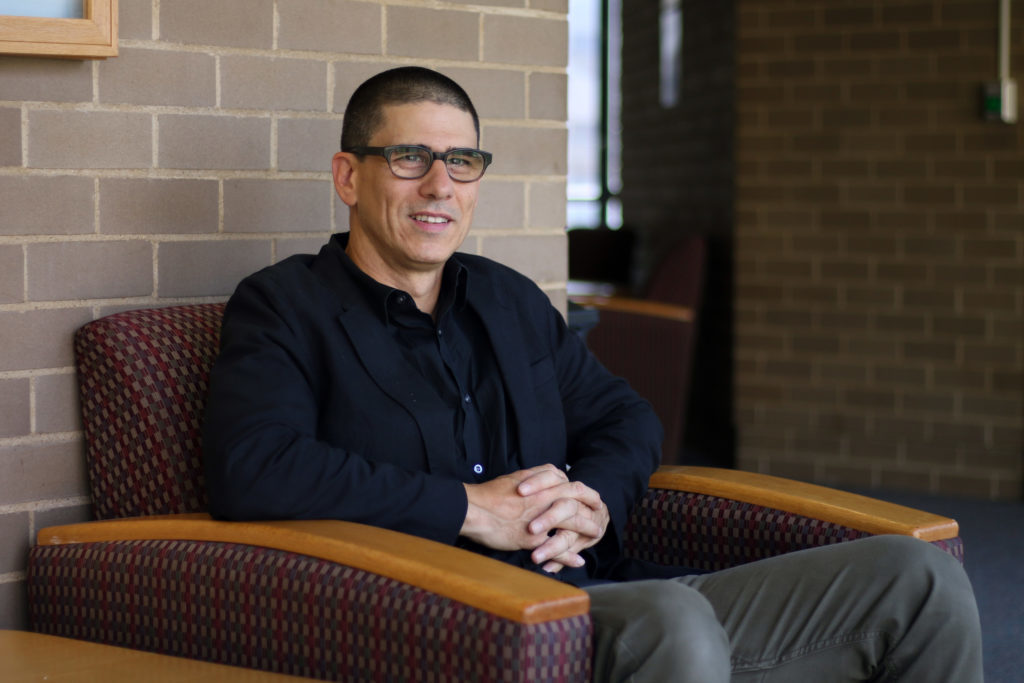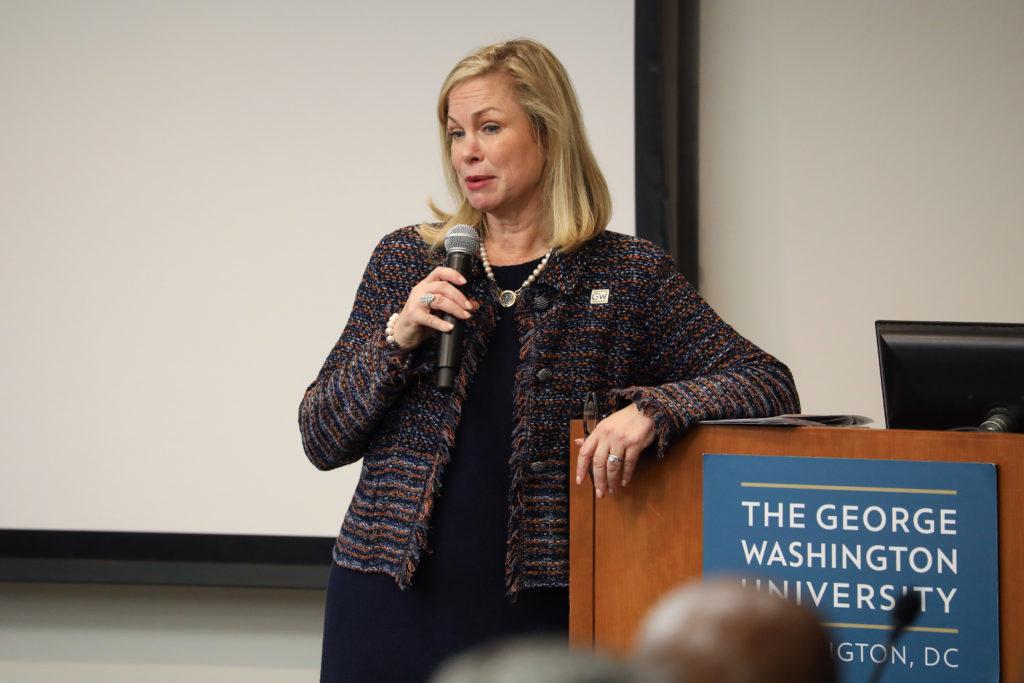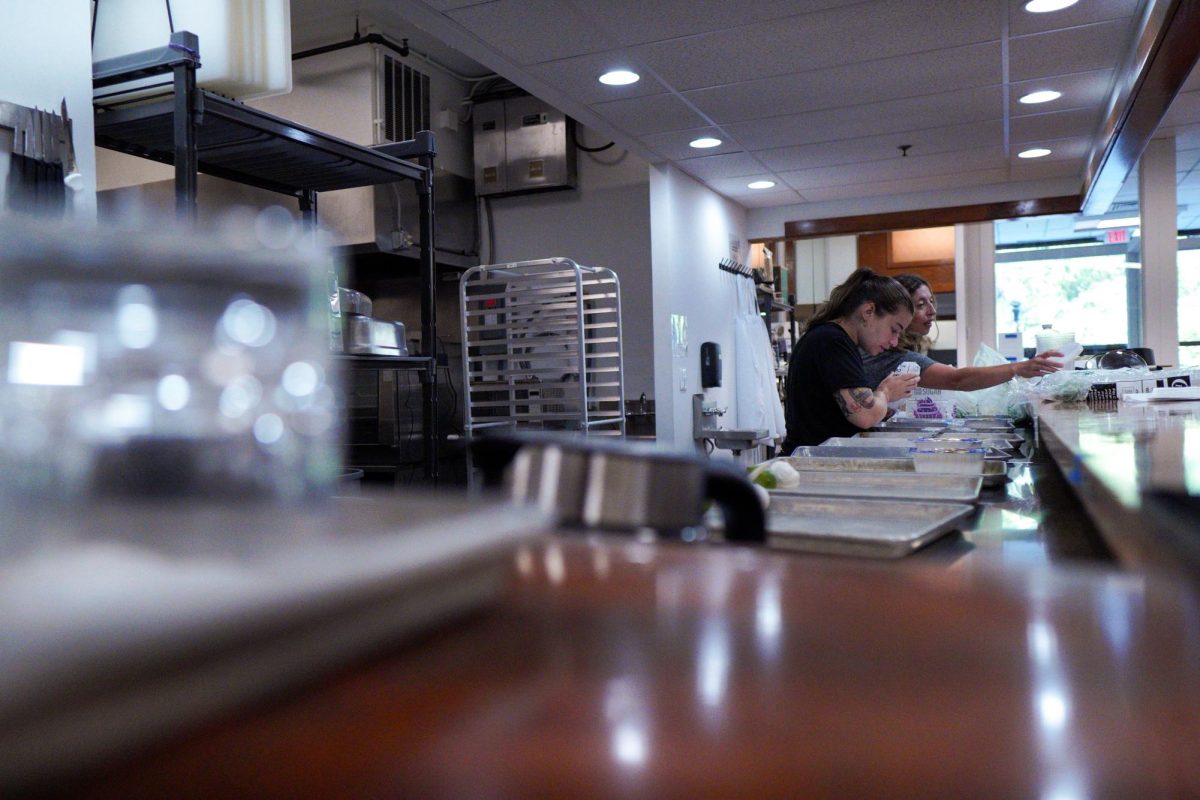The Department of Romance, German and Slavic Languages and Literatures hired four full-time faculty this semester – a boost faculty said will up the department’s research capacity and course offerings.
Of the 29 faculty hired in the Columbian College of Arts and Sciences this year, the department – which offers courses in six languages including Spanish and Italian – received the largest cut. Faculty and officials said adding full-time positions will meet the high demand of students taking language courses without sacrificing small class sizes and relying on part-time faculty to teach courses.
“The hire of new full-time faculty in RGSLL is the result of a two-year effort to diminish the department’s reliance on part-time language instructors,” Eric Arnesen, the vice dean for faculty and administration in CCAS, said in an email.
He said student interest in Spanish and French is high, so the dean’s office “supported” the addition for more full-time faculty rather than part-time faculty.
“The new full-time hires will ensure that the courses needed are offered regularly,” he added.
The department hired two French professors who teach Basic French and Intermediate French, and two Spanish professors who teach Intensive Elementary Spanish and Intermediate Spanish. The new hires are teaching a total of 13 classes this fall, according to the schedule of classes.
The Spanish program now has 19 faculty members and the French program has 14 faculty members, according to the department’s website.
The hires come on the heels of years of turmoil for the department, during which a lack of instructors led to canceled classes, and the department opted to offer foreign language courses in English with an optional language component to avoid cancellations.
Antonio Lopez, the interim chair of the department, said the new faculty members will bolster the language offerings in French and Spanish – two areas that have seen an increased demand as more students need to fulfill a language requirement. The number of students taking introductory language courses in Spanish and French has jumped from 591 students last fall to 618 students this semester, according to the GWeb Information System.
The Class of 2022 is also the largest freshman class since at least 2008, leading officials to add faculty and course offerings to accommodate new students.
“Combined, these new colleagues bring many semesters of teaching experience to RGSLL, and their specialization in applied linguistics very much enhances the research we do in the department,” he said.
Richard Robin, the former chair of the department and the director of Russian language, said the department has been trying for nearly a decade to hire more full-time faculty with experience teaching foreign language.
“We have been trying to for the last five or six years lower the number of part-timers teaching language classes for obvious reasons,” he said. “People want full-time teachers.”
He said the department has tried to “professionalize” the team of professors to ensure there are enough courses for majors, minors and students across GW taking introductory language courses.
“We’ve been hiring full-time teachers who have specialized degrees and training to teach in a foreign language, not just people who happen to be available to teach this or that course and who have done a little bit of teaching before,” he said.
Robin said courses in other departments, like biology and chemistry, can have larger sections with up to 100 students, but foreign language courses require intimate and small classes to effectively teach the language.
“We have to have small classes by the very nature of what we teach,” he said. “This is a constant battle that’s been going on in American education for the last 60 to 100 years.”
Maria Jose de la Fuente, a professor of Spanish and the former director of the Spanish language program, said adding more full-time faculty promotes stability for the department. She said full-time instructors “add sound, research-based language pedagogy, which is missing oftentimes in foreign language education even at college level.”
“The old model that the administration supported, hiring adjuncts for little pay, cannot be sustained,” de la Fuente said.
In recent years, the University has prioritized eliminating part-time faculty positions and hiring full-time, tenure track faculty.
She said adding more full-time faculty will reduce the chance of canceling courses in the department and eliminate the issues part-time faculty face, including poor pay and no benefits.
“In Spanish, the realities of the market is that everybody is looking for Spanish instructors, from elementary school all the way to college,” she said.





